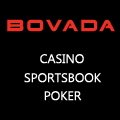Home Poker - Player Rules
Bets With Oversized Chips
In limit games, a bet with an oversized chip will be deemed to be a call if the player does not announce a raise. In no-limit, an oversized chip before the flop is a call; after the flop, an oversized chip by the initial bettor put in the pot will constitute the size of the bet.
Limit to Number of Raises
In limit events, there is usually a limit to the number of raises, usually the limit is 3 raises. Sometimes, when the hand only has 2 players left, then there is unlimited raising. If it is no-limit then there is never a limit to the number of raises.
Cards Speak
The value of a hand is what the cards show, not what the player announces - although a player deliberately and repetitively miscalling his hand with the intention of fooling other players can be penalized.
Verbal declarations stand
If a player verbally announces a move, then he will be required to play according to his verbal declarations - even if he hasn't moved his chips.
String Bets
String bets are not allowed. When raising, a player must either put the amount of the raise out in one motion or state the raise amount. If the raise is unannounced then the raise must be made in one motion. If the raise is announced but no amount is announced (“I raise”) then the amount of the raise must be in one motion. If both the raise and the amount are announced (“I raise 800”) then the player can make several motions to put chips into the pot since there is no question about the details.
If the last bet on the table was 200, and a player states "I raise 600", then this means that the player is raising BY 600, not TO 600. In other words, he is betting 800.
Table Stakes
Only the amount of chips the player has at the start of a hand is the amount available to wager. A player may not dip into his pocket for additional money during the hand. A player may put cash (or his wallet) into his stack before the start of the hand and have “cash play” as long as the house has a rule that cash plays.
Deck Changes
In most games, players are not allowed to ask for deck changes. There is rarely a legitimate reason to ask for a deck change. At casinos, sometimes they will accommodate a player's request for a deck change in order to placate him because he is a customer. At a home game, asking for a deck change would be considered an idiot request.
Card Visibility
It is a player's responsibility to make sure his cards are visible to other players at all times (they are allowed to lift their cards off the table to look at them). Dealers should remind players about this rule if they see a player slipping.
Unprotected Hands
If a dealer kills an unprotected hand, the player can't do anything about it because it is his responsibility to protect his cards. An exception would be if a player raised and his raise had not been called yet, he would be entitled to receive his raise back.
English only at the table.
Only English may be spoken at the table to ease player's fears about collusion.
Calling Time
A player can call time to think about his hand.
Sitting Out
In a tournament, a player has the right to sit out for as long as he wants as long as he posts his blinds. In a limit game, a player may sit out but needs to post a dead blind when sitting back in.
Showing Cards
When a player is all-in, he has to show his cards.
Showing Cards - Showdown - Who Shows First?
At the showdown:
- If everyone checks, then everyone must show their hand - in the order according to the button.
- If there is betting on the final round, then the player who puts in the final bet has to show first and the callers show next - in order according to the button.
Showing Cards - Showing Cards to Other Players
You are not allowed to show your cards to another player. If you show your cards to one player then you need to show them to all players, whether it is during a hand or after.
Showing Cards - Asking to See Other Player's Cards
A player may ask to see another player's mucked cards if he thinks they were cheating. If a player make this request too often then it will be ruled that he is abusing the rule in order to unfairly get information about another player.
Showing Cards - Just Showing One
In informal games, a player is sometimes allowed to show only one card to take down the pot. For example, if the board is JJ882, then he would show a J to indicate he had the nut full house, assuming it is good enough to win the pot. In formal games, you must show both cards in order to win the pot.
Discussing a hand
In laid-back home games, most of the time players are allowed to talk about a hand in play because it is fun. In formal games, players (whether in the hand or not) are not allowed to discuss hands until the hand is over. Talking about a hand can hurt certain players in a hand. A player may be penalized for breaking these rules.
COMMENTS:
Log in to post comments
or Register
HPG ADMIN on March 1, 2013






